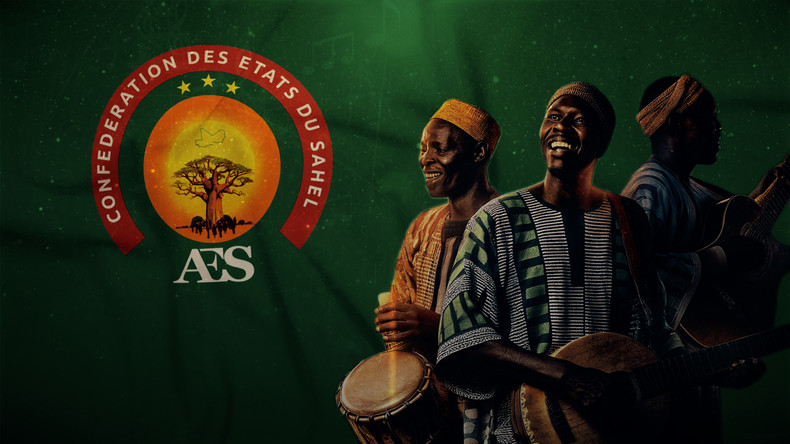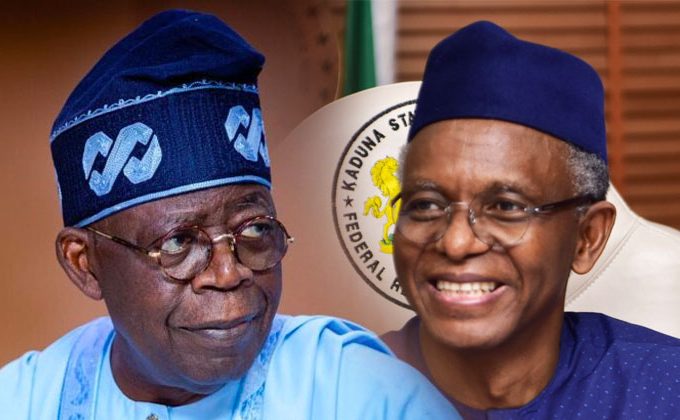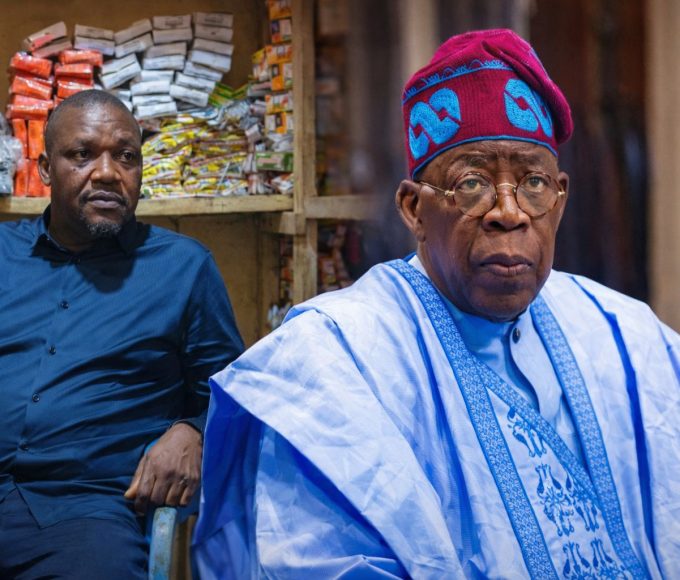
The Next Stage Of Revolution In Burkina Faso, Mali, And Niger: Toward Cultural Sovereignty And Rebirth

The Sahel states of Burkina Faso, Mali, and Niger have undergone a profound political revolution, successfully expelling French neocolonial influence and charting a new course toward revolutionary development. Recognising that political sovereignty is inseparable from economic independence, these nations have begun laying the foundations for economic revitalisation and emerging industrialisation.
The unique conditions of its society shape each revolution. In the Sahel, the engine of change has been military officers with revolutionary consciousness, committed to breaking free from imperialist domination and steering their countries toward self-determination. But political and economic liberation alone do not complete the revolution.
The next, and perhaps most crucial, stage for the Sahel states is a cultural revolution, a profound, people-centred transformation led by these new revolutionary governments. Culture is not neutral; it can serve as a powerful instrument of either oppression or liberation. Colonialism weaponised culture, using education, language, and media to instil a sense of Western superiority and diminish African identity.
Even after formal independence, neocolonial structures persisted, primarily through the dominance of Western media and institutions that continued to shape the worldview and aspirations of African peoples. To reverse this, a cultural revolution must reassert and rejuvenate African values, heritage, and self-worth, not in isolation, but as a foundation for sustainable development and true freedom.
In the context of African revolutions, no liberation is complete without cultural emancipation. For the Sahel states, reclaiming and revitalising their cultural identity is not just a matter of pride but a necessary step toward genuine sovereignty and people-driven progress.
An enlightened people can never be deceived, enslaved, or misruled. For the cultural revolution in Burkina Faso, Mali, and Niger to succeed, it must be rooted in an organised effort to awaken the consciousness of the people. The first step in this process is the establishment of a Cultural Revolutionary Institution (CRI), a centralised body tasked with spearheading and managing the cultural transformation across each country.
This institution must be fully empowered and well-funded by the revolutionary governments of the Confederation of Sahel States (CSS). It should have branches in every province, adapted to the unique geographical and cultural landscapes of each state. The CRI must be granted the legal authority to educate, organise, and, where necessary, discipline citizens who defy the mandates of the cultural revolution, as the success of such a transformation demands both enlightenment and discipline.
At the heart of this effort will be Cultural Workshops, established in every village, town, and city. These workshops should operate at a density of one per every 100 citizens, ensuring intimate, community-based engagement. Attendance must be mandatory for all citizens, without exception. These workshops will serve as grassroots centres of ideological education, cultural enlightenment, and national renewal.
The curriculum of these workshops must aim to decolonise the minds of the people and rekindle pride in African heritage, values, and civilisation. Citizens must be taught the rich and dignified history of Africa before European invasion, the grandeur of African empires, the sophistication of indigenous political and social systems, and the deep spiritual and communal values that sustained African societies.
Equally important, they must gain a full understanding of the Trans-Atlantic slave trade, exposing the brutal hypocrisy of those who claimed to be “civilised” while committing atrocities. The workshops must analyse the colonial era, not merely as a historical fact but as a period of violent subjugation, economic plunder, and psychological warfare aimed at erasing African identity.
Citizens must also learn about neocolonialism, how it took root in the CSS after independence, and how it continues to operate in much of Africa today. The purpose of this education is not only to inform but to empower people with historical clarity, awaken their revolutionary spirit, and prepare them to defend their cultural sovereignty against any form of external domination.
Furthermore, African history must become a compulsory subject at every level of education, from primary schools to universities. It should not be relegated to a single course but integrated as a central pillar of the national curriculum, shaping the worldview of future generations and grounding them in the reality of their origins, struggles, and capacity for greatness. Only by reclaiming their cultural identity, rebuilding their historical consciousness, and uniting under a shared revolutionary purpose can the people of the Sahel achieve full liberation. The cultural revolution, thus, is not a luxury; it is a necessity.
As part of its core mandate, the CRI must take decisive action to halt the import and dissemination of Western media, including news outlets, films, television shows, and digital content, that distort African realities or portray the continent and its people in a negative, degrading, or inferior light. These forms of media have long served as instruments of cultural imperialism, subtly reinforcing psychological subjugation and eroding the self-worth of African societies.
In their place, the CRI must aggressively promote and invest in indigenous media, film, and storytelling industries that reflect, celebrate, and preserve African culture, history, values, and identity. This should not be left to private initiative alone. The institution must launch state-funded cultural projects at scale, including television series, documentaries, cinema, theatre, and literature, all rooted in the realities, traditions, and triumphs of African peoples.
These initiatives must be massive, coordinated, and sustained, reaching every corner of the Sahel. By controlling the cultural narrative and providing citizens with authentic representations of their identity and heritage, the CSS can combat decades of foreign propaganda and misinformation.
The cultural revolution is not secondary; it is as essential as the political revolution that has already laid the groundwork for economic transformation. Without a cultural awakening, the revolutionary process remains incomplete. Political independence without cultural sovereignty is a hollow victory. The people must reclaim not only their land and resources but also their minds, their stories, and their vision for the future.
As part of its broad cultural mandate, the CRI must also take leadership in the development and promotion of sports, beginning at the grassroots level and extending to professional ranks. Sport is not merely recreational; it is a powerful tool for social cohesion, identity-building, and cultural expression. Within the Sahel states, it must be harnessed as an integral component of the ongoing revolution.
The CRI must ensure that sports institutions are built and supported across every province, village, town, and city. This includes recognising, preserving, and promoting indigenous sports, alongside more globally known disciplines. The sports that people are already engaged in at the grassroots level must be incorporated and elevated, ensuring that development reflects the cultural realities and interests of each community.
Moreover, sports must serve as a mechanism for fostering unity and solidarity among the citizens of each CSS country and across the region as a whole. Through organised competitions, festivals, and intercommunal games, sport can be used to strengthen the social fabric, build revolutionary spirit, and reinforce shared identity and pride.
Importantly, the values and principles embedded in African cultures, such as discipline, teamwork, honour, and respect for community, must be woven into the design and execution of sports programmes. Sports in the CSS must not become a vehicle for individualism or commodification, as seen in the West, but instead reflect the collectivist and transformative ethos of the revolution itself. In this way, sports will not only entertain or train athletes but also become a living expression of the cultural revolution, mirroring the CSS countries’ broader journey toward liberation, unity, and self-determination.
The CRI must also address the domain of personal appearance and dress, recognising that fashion and beauty standards have long been used as tools of cultural domination. The CRI must promote and enforce responsible and dignified modes of dressing for both men and women, standards that reflect African values, aesthetics, and identity, and are free from the influence of distorted Western ideologies of fashion.
In particular, the rejection of Eurocentric beauty standards must be central to this cultural revolution. Women must be encouraged, and where necessary, required to embrace natural African hairstyles and traditional modes of appearance. The widespread use of wigs, chemically altered hair, and styles rooted in foreign ideals must be actively discouraged and replaced with authentic, African expressions of beauty. This is not a matter of fashion alone, but of psychological liberation and cultural pride.
Historically, before the era of European invasion and colonisation, African women played vital roles in their societies as leaders, warriors, traders, spiritual guides, and community builders. The cultural revolution must therefore not only restore African identity in appearance but also reclaim the social and political power of women.
Women must be empowered as pillars of the new society, entrusted with leadership, education, and community development. They must be recognised as equal participants in the revolutionary process, with access to opportunities, responsibilities, and representation at all levels of governance and public life. Their empowerment must be rooted in African traditions, not imposed foreign models, and must serve the broader goals of cultural renewal, dignity, and collective advancement.
Essentially, it is the solemn duty of revolutionaries not only to lead a political transformation but to build enduring systems and structures capable of carrying forward their vision without compromise or distortion. The work of revolution is not complete until these systems are firmly established, self-sustaining, and immune to reversal. Until then, revolutionaries must remain in power, as guardians of the people’s mandate and the architects of a new society.
In Africa, Western-style democracy has long been presented as the solution to the continent’s political challenges. But for the Sahel states, Burkina Faso, Mali, and Niger, this imported model must be rejected. Foreign templates must not shape the future, but by systems rooted in the realities, history, values, struggles and geography of the Sahelian people.
The new political order must reflect African political traditions, where egalitarianism, the rule of law, accountability, human rights, inclusive governance, and checks and balances were already practised long before colonialism. These are not foreign ideals; they are indigenous African values found in the governing principles of ancient kingdoms, empires, and communal societies. The revolutionary governments of the CSS must revive and adapt these principles to guide the new state systems they create.
Moreover, any citizen entrusted with public office in the governments of the CSS must be someone transformed by the cultural revolution, a person whose thinking, values, and way of life reflect a deep commitment to African identity, dignity, and revolutionary purpose. Only such individuals can be trusted to lead, protect, and uplift the people.
The cultural revolution must follow the political revolution, not as an afterthought, but as its very heart and soul. And when this is achieved, when both political and cultural liberation are complete, the revolution of the Sahel will become immortal. Then, and only then, will the Confederation of Sahel States, Burkina Faso, Mali, and Niger become truly unstoppable, standing firm against all odds, and lighting the path for a liberated Africa.
About The Author
%s Comment
Leave a Reply Cancel reply
Related Articles
Tinubu Deducts N100bn Monthly From Federation Account Without Approval El-Rufai Alleges Says Action Deserves Impeachment
Former Kaduna State Governor Nasir El-Rufai has launched a blistering attack on...
ByWest Africa WeeklyJanuary 26, 2026Trump’s Greenland Threat Forces Europe to Taste the Logic of Western Colonial Power
It rarely begins with soldiers. More often, it begins with a sentence,...
ByWest Africa WeeklyJanuary 21, 2026Tinubu Government Claims Intelligence Cooperation With the US, Yet New York Times Publishes Conflicting Story Following $9 Million US Lobbying Effort
When the New York Times published its investigation suggesting that claims from...
ByWest Africa WeeklyJanuary 19, 2026Mali’s Transition Leader Attends Swearing-In of Guinea’s President Mamadi Doumbouya
Mali’s President of the Transition, General Assimi Goïta, represented the country in...
ByWest Africa WeeklyJanuary 19, 2026












Onward 🌍❤️